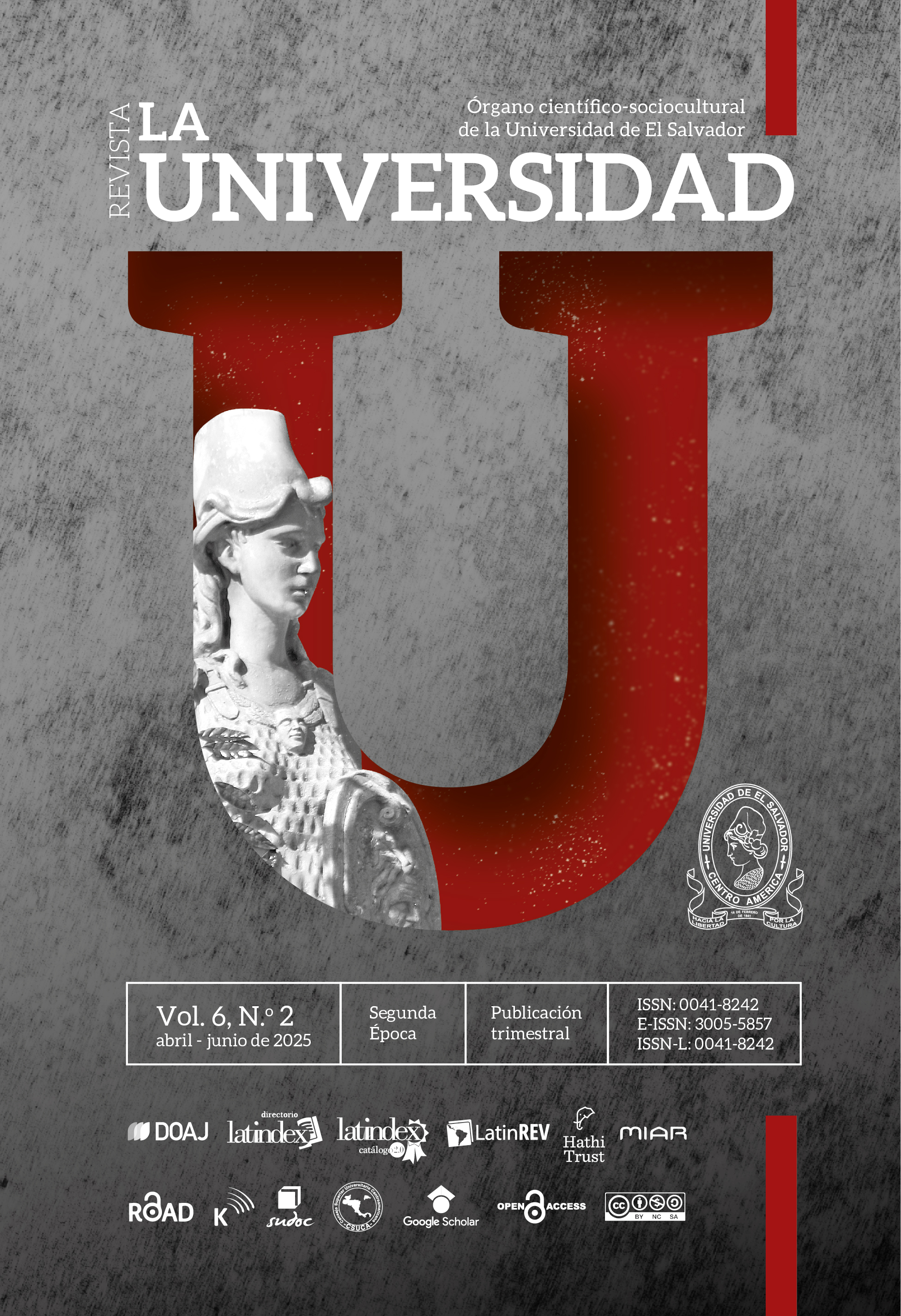Digital Teaching Competencies in Graduate Learning at the Latin American University of Science and Technology:
an Analysis in the Master’s in Curriculum and University Teaching and the Master’s in Psychopedagogy (Second Quadrimester of 2022)
Keywords:
online learning, teacher competencies, teacher training, training, updating knowledgeAbstract
The training of teachers in digital competencies and their application in the learning process are essential for the adequate preparation of future professionals in an increasingly digitalized and globalized labor market. The objective of this article was to analyze the perceptions and experiences about digital competencies of teachers who teach courses in the Master of Curriculum and University Teaching and in the Master of Psychopedagogy, at the Latin American University of Science and Technology, exploring the relationship between digital competencies and their application in higher education during the second quarter of the year 2022. With a qualitative methodological design and a descriptive approach, the study used a perception questionnaire to inquire about teachers’ digital teaching competencies. The results obtained showed how they defined digital competencies and their application in higher education. These perceptions underscored the importance of integrating digital technologies into the educational environment, using varied approaches and strategies that would enhance learning and digital interaction in the classroom. Finally, this study highlighted the importance of integrating teachers’ digital competencies in the learning process, updating and diversifying technological training courses in higher education. In addition, emphasis was placed on the creation of spaces that would allow teachers to apply and develop their technological skills to face the challenges of a constantly evolving digital environment.
Downloads
References
Amador-Solano, M. G., y Salas-Acuña, E. F. (2022). El reto educativo universitario ante la pandemia por COVID-19: Propuesta de criterios pedagógicos. Revista Tecnología En Marcha, 35(5), 286–300. https://doi.org/10.18845/tm.v35i5.6195
Bullón, O. (2021). Educación virtual interactiva como metodología para la educación: Revisión de literatura. In Crescendo, 11(2), 225–238. https://doi.org/10.21895/incres.2020.v11n2.06
Centeno-Caamal, R. (2021). Formación tecnológica y competencias digitales docentes. Revista Docentes 2.0, 11(1), 174–182. https://doi.org/10.37843/rted.v11i1.210
Hernández, R., Fernández, C., y Baptista, P. (2010). Metodología de la investigación (5ª ed.). McGraw-Hill.
Ianes, G., y Hofmeister, W. (2005). Evaluación del sistema educativo: Informe del sistema educativo de Costa Rica. Fundación Konrad Adenauer. https://www.kas.de/documents/252038/253252/7_dokument_dok_pdf_7342_4.pdf/5316b05f-bf1a-aef0-0557-0e32763788f4?version=1.0&t=1539672976274
Jara-Vaca, F. L., Chávez-Guevara, J. E., Villa-Escudero, I. C., y Novillo-Novillo, J. L. (2021). Rol del docente para la educación virtual en tiempos de pandemia: Retos y oportunidades. Política, Conocimiento y Sociedad, 6(11), 30–45. https://doi.org/10.23857/pc.v6i11.3248
Martínez-Garcés, J., y Garcés-Fuenmayor, J. (2020). Competencias digitales docentes y el reto de la educación virtual derivado de la COVID-19. Educación y Humanismo, 22(39), 1–16. https://doi.org/10.17081/eduhum.22.39.4114
Mota, K., Concha, C., y Muñoz, N. (2020). Educación virtual como agente transformador de los procesos de aprendizaje. Revista on line de Política e Gestão Educacional, 24(3), 1216–1225. https://doi.org/10.22633/rpge.v24i3.14358
Padilla Hernández, A. L. (2020). Evolución de la competencia digital docente de profesores universitarios a partir de relatos de vida: Estudios de caso en México y España [Tesis doctoral, Universidad de Granada]. http://hdl.handle.net/10481/62914
Programa Estado de la Nación. (2021). Octavo informe Estado de la Educación 2021. Consejo Nacional de Rectores (CONARE). https://repositorio.conare.ac.cr/handle/20.500.12337/7773
Reynosa, E., Rivera, E., Rodríguez, D., y Bravo, R. (2020). Adaptación docente educativa en el contexto COVID-19: Una revisión sistemática. Conrado, 16(77), 141–149.
Rizo Rodríguez, M. (2020). Rol del docente y estudiante en la educación virtual. Revista Multi-Ensayos, 6(12), 28–37. https://doi.org/10.5377/multiensayos.v6i12.10117
Silva, J. (2011). Diseño y moderación de entornos virtuales de aprendizaje (EVA). Editorial UOC.
Tadeu, P. (2020). La competencia científico-tecnológica en la formación del futuro docente: Algunos aspectos de la autopercepción en respeto a la integración de las TIC en el aula. Educatio Siglo XXI, 38(3), 37–54. https://doi.org/10.6018/educatio.413821
Valarezo, J., y Santos, O. (2019). Las tecnologías del aprendizaje y el conocimiento en la formación docente. Conrado, 15(68), 180–186. http://scielo.sld.cu/scielo.php?script=sci_arttext&pid=S1990-86442019000300180&lng=es&tlng=es
Downloads
Published
Issue
Section
License
Copyright (c) 2025 Authors who publish in Revista La Universidad agree to the following terms: Authors continue as owners of their works, non-exclusively assigning dissemination rights to La Universidad Journal under the standards of the Attribution-NonCommercial-ShareAlike License: CC BY-NC-SA 4.0. This license allows the use of a work to create another work or content, modifying or not the original work, as long as the author is cited, the resulting work is shared under the same type of license and has no commercial purposes(https://creativecommons.org/licenses/by-nc-sa/4.0/deed.es).

This work is licensed under a Creative Commons Attribution-NonCommercial-ShareAlike 4.0 International License.





